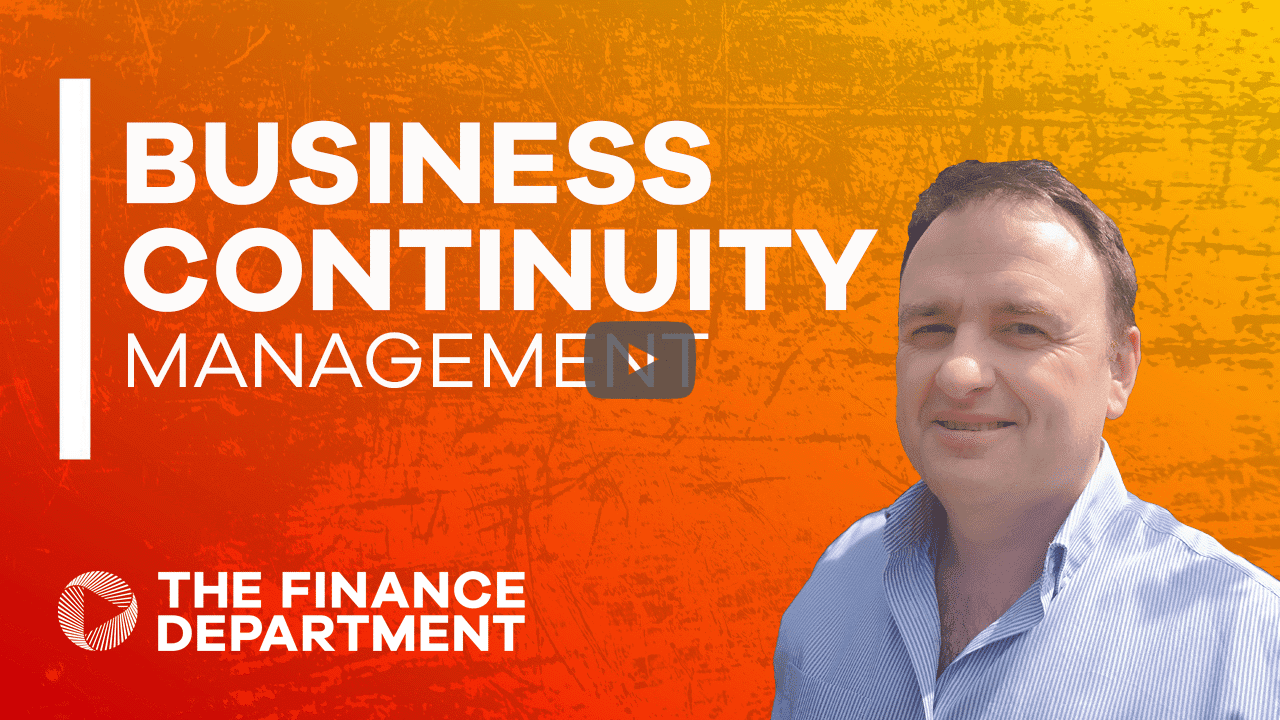Join today and start learning
TFD is the learning platform built for finance professionals.
This content is available as part of our bitesized video series.
Watch this video today by joining our free community.
Join today and start learning
TFD is the learning platform built for finance professionals.
This content is available as part of our bitesized video series.
Watch this video today by joining our free community.
Video : Day One Legals- For Start up to SME
In this video, Adil Khan discusses:
– Getting started with the Legal Documents and Processes you need on Day 1 of building your high-growth company
– Taking a deep dive into the legals for e-commerce ventures and platform businesses; who is your core customer?
– Cookie policy, T’s & C’s, Data Compliance and Privacy
– Do you have the legal authority to undertake marketing freely?
– Remunerating suppliers and contractors with equity; Sweat Equity Agreements
Hi, I’m Adil Khan. I’m the managing director of Sprintlaw UK. We’re a tech-powered law firm out of Australia that set up in the UK early last year in 2020. We are focused on building a product line designed for SMEs and startups as they grow along that early stage growth arc. So, in many ways, we are very familiar with the issues that small early-stage companies face, and that’s why I’m here today to talk about what legals do you need in place from day one.
So, right off the bat, it’s important to talk about why. Why does a typically cash-strapped early-stage startup need to even consider legal? Is it not just a high-end service that’s only required once things get more serious? In many ways, it’s considered by a lot of founders, as something of an insurance policy, that’s when we’re acquired in particular circumstances, but hopefully over this short conversation I can identify a few areas, whether that be in the corporate sphere or in the general commercial sphere, where it is not so expensive to address these high-risk areas, quite quickly and quite easily. And that’s why companies like Sprintlaw have essentially been grown over the last few years. We filled a niche, by enabling small businesses to get quality legal services at costs that aren’t extortionate.
In terms of looking at the areas of what I want to talk about, two particular business models, first and foremost, that we see a lot of, and that’s e-commerce ventures and platform business models. So, in terms of e-commerce ventures where that, you know, we deal with and helped hundreds of early-stage online stores get up and running, whether those be independent or hosted via a platform like Shopify. Now, what we typically advise companies to think about, A) the consumer side and what is your core contract with your customers? That’s typically your ecommerce T&Cs, that clients will accept at the point of purchase, and what’s critical is that you don’t see this as cookie-cutter agreement. I know it’s very tempting to look at all the other hundreds of thousands of e-commerce stores out there and just copy and edit, tweak a few components to make it fit, but every store has a unique product offering or at least you’d hope so, I’m sure a founder would say they would. We typically would have a unique return policy, rectification of goods issues have to come into play, of course, payment processing has to come into play.
So, we always recommend you take a long hard look at what your T&Cs look like, and this is again, something that we can consider across difference industry segments, I’m just walking through this example to really point that out. Of course, when you’re setting up a website and taking individual data of this kind, data compliance questions arise, and so you need a privacy and a cookie policy there to ensure that you have the requisite consents to use your customer data in the way that you see fit. Given the time of year, I’m sure a lot of people are considering Christmas promotions, and so the question arises, do you have the relevant consents to do so? And if you don’t have a cookie or a privacy policy in your online store, you probably shouldn’t be doing that. So, take those early stage steps to really make sure that you can do what you want to do commercially down the line.
Now, looking at the other side of the online store, of course, you have the suppliers. So typically that will involve some element of the supply agreement, and again, you know, it’s easy enough to think about as an international supplier who might not want to have, you know, sign an English law agreement, we might just be satisfied with new supplying goods on an email exchange, and money transferred through Transferwise, but we highly recommend you have a proper paperwork in place, and that’s especially the case when will be running a drop shipping model, you know, there you have quality and timing issues that all need to be very carefully in stated in any such agreement. So that’s a little bit of what we would look at of an online store.
And in many ways when you look at a platform business model or an online marketplace, where they act as intermediary, you have similar components. In that sense, we typically look at things in terms of supply and demand sets on the demand side, for a platform, that’s typically, your end buyers. You have so many of the same things, you want to get marketplace T&Cs place that clarify who has liability for the services being delivered. If the marked platform is something of an intermediary, and they don’t want to take on that liability. You also want to get those basic data compliance policies in place that we spoke of earlier. On the supply side, a platform will likely look at getting service agreements in place for their service providers. Of course, if you’re planning on scaling your service provider side to hundreds of parties, and in that case, maybe vendor terms of use would be more appropriate. But you need those documents in place, and hacking them together from templates you found online aren’t necessarily going to look professional, or potentially cause issues down the line.
So just a quick walk through of what two business models we would typically talk about with clients when they come in the door. It’s important now to sort of consider a few other areas. One is, of course, the corporate side business. It’s something that is quite critical to early-stage founders, in when you have more than one founder in the picture, it is always, always a good idea to think about getting a shareholders agreement, or at least, a founders term sheet in place as soon as possible. Quite frankly, a business isn’t a going concern until they have such documentation in place, because if one shareholder, or one founder walks away, there really isn’t any process in place to ensure the company continues. And so, the importance of this documentation can’t be understated.
Other areas, for instance your staffing or resourcing is important to consider. As an early stage startup you’re unlikely to have employees, but if you do, you want to have proper paperwork in place there, especially as we move to remote primary environments for a lot of workplaces. You want to make sure that you have effective control over what the employee is doing and the work output they’re creating. And that includes for contractors, you want to get contractor or freelancer agreements in place for anybody who’s creating IP that you consider owned by the company. And the only way of doing that is having a solid contract in place with the relevant clauses. And a final means, that a lot of early stage founders look at, is rather than engaging parties to work for cash payments and is engaging parties to work for equity. Now we’ve seen this a number of times where companies come in and say, we’ve been working with X party for a number of months and you know, we promised them the share of equity, and let’s get that paperwork in place. And that quite frankly is the worst time to do it. You should be doing so upfront. If you have any arrangement with a third party, in terms of exchanging services for equity, you need to get that drafted into a sweat equity agreement as soon as possible. It’s an analogy that I often draw with clients is that, you know, you don’t want a lawyer to be the ambulance at the bottom of a cliff, you want them to hit the top of the cliff to make sure nothing goes wrong, and you don’t need that lawyer at the bottom of the cliff, and in many ways, sort of thinking about your legals and what legals you need to have in place by day one, is about that.
It’s about managing risk, but also operational performance, and having a conversation with counsel who understands your industry, who understands your business model, will typically be able to identify what those areas are and again that presents affordable solutions to get you where you want to be, might not necessarily solve all your problems, and you might see some of those priorities as medium-term given where and how you’re operating, but it’s important to have that conversation. And here at Sprintlaw we’re always open to that.
I hope you found this video helpful.
Thank you.
Adil Khan is the Managing Director of Sprintlaw’s first international office in London. Adil has previously practiced in a top-tier Canadian firm and been active in the UK legal tech ecosystem since early 2017.
Sprintlaw is an award-winning online law firm on a mission to automate, de-mystify and simplify basic legal services for small businesses and startups. Adil manages operations for the firm and is responsible for ensuring it’s diverse client base gets the advisory solutions they require to protect them going forward.
Video: Day One Legals- For Start up to SME
In this video, Adil Khan discusses:
– Getting started with the Legal Documents and Processes you need on Day 1 of building your high-growth company
– Taking a deep dive into the legals for e-commerce ventures and platform businesses; who is your core customer?
– Cookie policy, T’s & C’s, Data Compliance and Privacy
– Do you have the legal authority to undertake marketing freely?
– Remunerating suppliers and contractors with equity; Sweat Equity Agreements
Hi, I’m Adil Khan. I’m the managing director of Sprintlaw UK. We’re a tech-powered law firm out of Australia that set up in the UK early last year in 2020. We are focused on building a product line designed for SMEs and startups as they grow along that early stage growth arc. So, in many ways, we are very familiar with the issues that small early-stage companies face, and that’s why I’m here today to talk about what legals do you need in place from day one.
So, right off the bat, it’s important to talk about why. Why does a typically cash-strapped early-stage startup need to even consider legal? Is it not just a high-end service that’s only required once things get more serious? In many ways, it’s considered by a lot of founders, as something of an insurance policy, that’s when we’re acquired in particular circumstances, but hopefully over this short conversation I can identify a few areas, whether that be in the corporate sphere or in the general commercial sphere, where it is not so expensive to address these high-risk areas, quite quickly and quite easily. And that’s why companies like Sprintlaw have essentially been grown over the last few years. We filled a niche, by enabling small businesses to get quality legal services at costs that aren’t extortionate.
In terms of looking at the areas of what I want to talk about, two particular business models, first and foremost, that we see a lot of, and that’s e-commerce ventures and platform business models. So, in terms of e-commerce ventures where that, you know, we deal with and helped hundreds of early-stage online stores get up and running, whether those be independent or hosted via a platform like Shopify. Now, what we typically advise companies to think about, A) the consumer side and what is your core contract with your customers? That’s typically your ecommerce T&Cs, that clients will accept at the point of purchase, and what’s critical is that you don’t see this as cookie-cutter agreement. I know it’s very tempting to look at all the other hundreds of thousands of e-commerce stores out there and just copy and edit, tweak a few components to make it fit, but every store has a unique product offering or at least you’d hope so, I’m sure a founder would say they would. We typically would have a unique return policy, rectification of goods issues have to come into play, of course, payment processing has to come into play.
So, we always recommend you take a long hard look at what your T&Cs look like, and this is again, something that we can consider across difference industry segments, I’m just walking through this example to really point that out. Of course, when you’re setting up a website and taking individual data of this kind, data compliance questions arise, and so you need a privacy and a cookie policy there to ensure that you have the requisite consents to use your customer data in the way that you see fit. Given the time of year, I’m sure a lot of people are considering Christmas promotions, and so the question arises, do you have the relevant consents to do so? And if you don’t have a cookie or a privacy policy in your online store, you probably shouldn’t be doing that. So, take those early stage steps to really make sure that you can do what you want to do commercially down the line.
Now, looking at the other side of the online store, of course, you have the suppliers. So typically that will involve some element of the supply agreement, and again, you know, it’s easy enough to think about as an international supplier who might not want to have, you know, sign an English law agreement, we might just be satisfied with new supplying goods on an email exchange, and money transferred through Transferwise, but we highly recommend you have a proper paperwork in place, and that’s especially the case when will be running a drop shipping model, you know, there you have quality and timing issues that all need to be very carefully in stated in any such agreement. So that’s a little bit of what we would look at of an online store.
And in many ways when you look at a platform business model or an online marketplace, where they act as intermediary, you have similar components. In that sense, we typically look at things in terms of supply and demand sets on the demand side, for a platform, that’s typically, your end buyers. You have so many of the same things, you want to get marketplace T&Cs place that clarify who has liability for the services being delivered. If the marked platform is something of an intermediary, and they don’t want to take on that liability. You also want to get those basic data compliance policies in place that we spoke of earlier. On the supply side, a platform will likely look at getting service agreements in place for their service providers. Of course, if you’re planning on scaling your service provider side to hundreds of parties, and in that case, maybe vendor terms of use would be more appropriate. But you need those documents in place, and hacking them together from templates you found online aren’t necessarily going to look professional, or potentially cause issues down the line.
So just a quick walk through of what two business models we would typically talk about with clients when they come in the door. It’s important now to sort of consider a few other areas. One is, of course, the corporate side business. It’s something that is quite critical to early-stage founders, in when you have more than one founder in the picture, it is always, always a good idea to think about getting a shareholders agreement, or at least, a founders term sheet in place as soon as possible. Quite frankly, a business isn’t a going concern until they have such documentation in place, because if one shareholder, or one founder walks away, there really isn’t any process in place to ensure the company continues. And so, the importance of this documentation can’t be understated.
Other areas, for instance your staffing or resourcing is important to consider. As an early stage startup you’re unlikely to have employees, but if you do, you want to have proper paperwork in place there, especially as we move to remote primary environments for a lot of workplaces. You want to make sure that you have effective control over what the employee is doing and the work output they’re creating. And that includes for contractors, you want to get contractor or freelancer agreements in place for anybody who’s creating IP that you consider owned by the company. And the only way of doing that is having a solid contract in place with the relevant clauses. And a final means, that a lot of early stage founders look at, is rather than engaging parties to work for cash payments and is engaging parties to work for equity. Now we’ve seen this a number of times where companies come in and say, we’ve been working with X party for a number of months and you know, we promised them the share of equity, and let’s get that paperwork in place. And that quite frankly is the worst time to do it. You should be doing so upfront. If you have any arrangement with a third party, in terms of exchanging services for equity, you need to get that drafted into a sweat equity agreement as soon as possible. It’s an analogy that I often draw with clients is that, you know, you don’t want a lawyer to be the ambulance at the bottom of a cliff, you want them to hit the top of the cliff to make sure nothing goes wrong, and you don’t need that lawyer at the bottom of the cliff, and in many ways, sort of thinking about your legals and what legals you need to have in place by day one, is about that.
It’s about managing risk, but also operational performance, and having a conversation with counsel who understands your industry, who understands your business model, will typically be able to identify what those areas are and again that presents affordable solutions to get you where you want to be, might not necessarily solve all your problems, and you might see some of those priorities as medium-term given where and how you’re operating, but it’s important to have that conversation. And here at Sprintlaw we’re always open to that.
I hope you found this video helpful.
Thank you.
Adil Khan is the Managing Director of Sprintlaw’s first international office in London. Adil has previously practiced in a top-tier Canadian firm and been active in the UK legal tech ecosystem since early 2017.
Sprintlaw is an award-winning online law firm on a mission to automate, de-mystify and simplify basic legal services for small businesses and startups. Adil manages operations for the firm and is responsible for ensuring it’s diverse client base gets the advisory solutions they require to protect them going forward.










